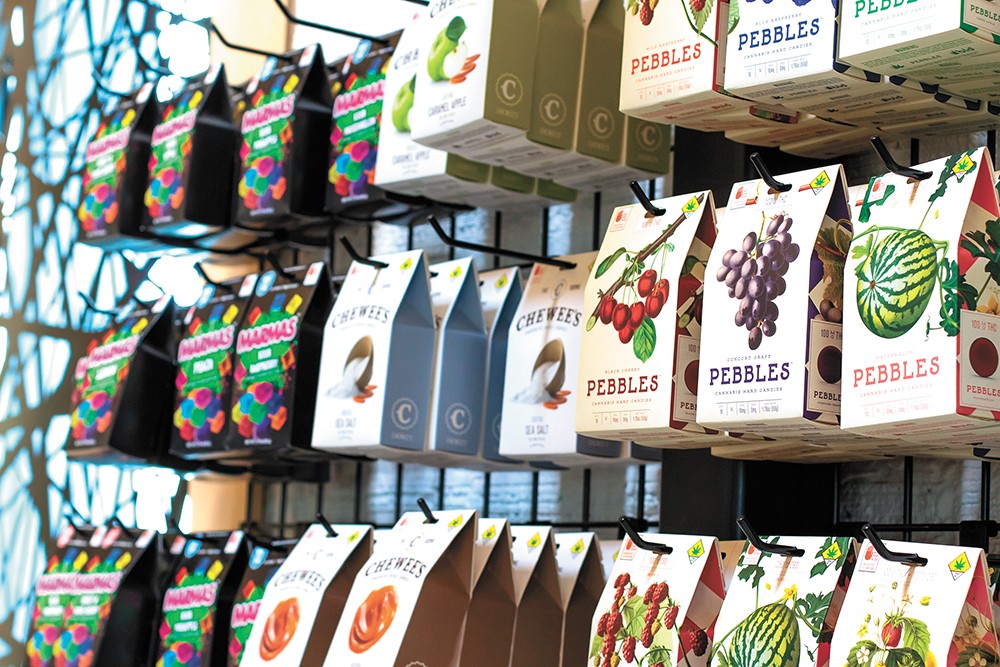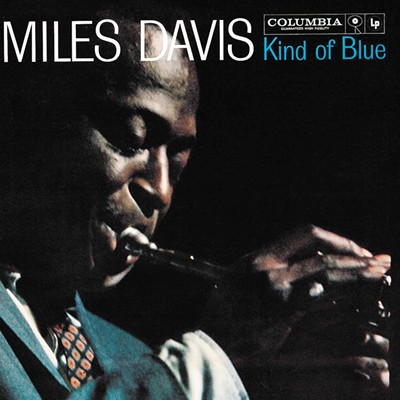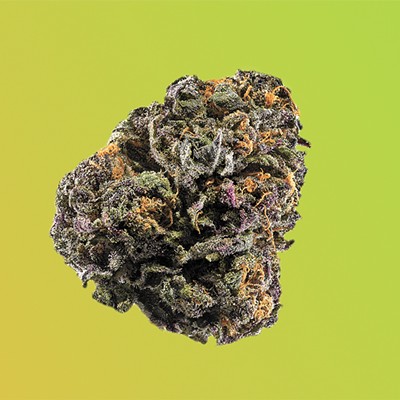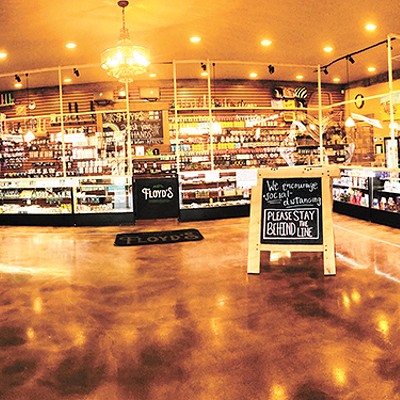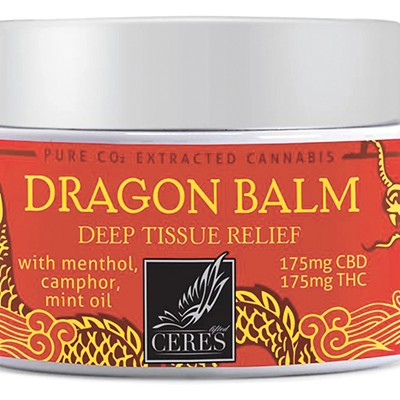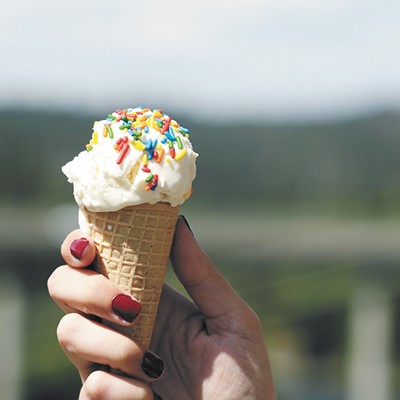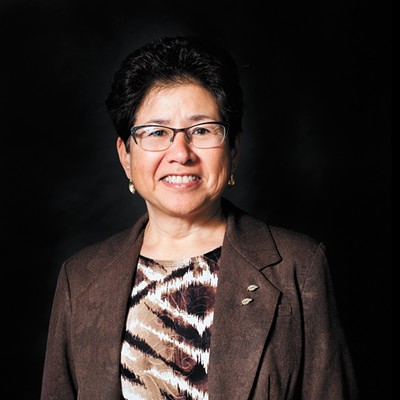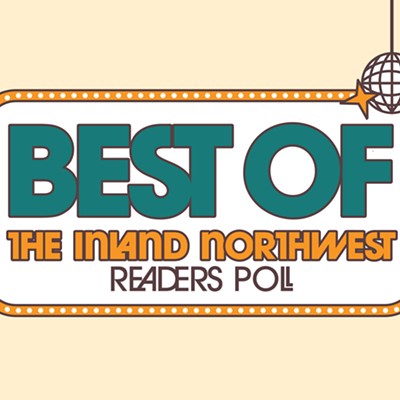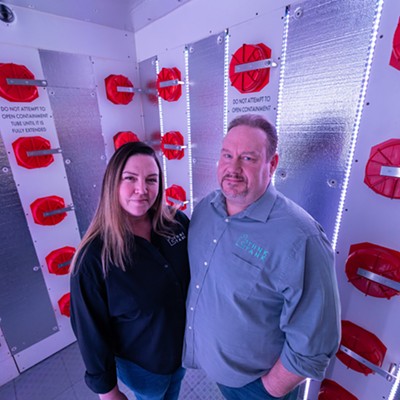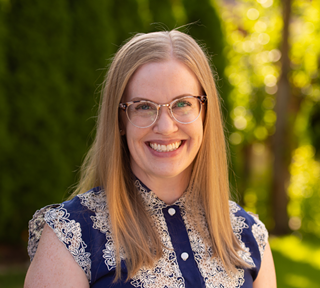Cannabis users may want to set aside their pipes, bongs and vape pens until the threat of COVID-19 has passed. Health experts are concerned that individuals with a history of smoking or vaping — both tobacco and marijuana — could experience a more severe infection of the coronavirus, which attacks the lungs.
While there haven't been many studies yet on COVID-19's impacts on this specific demographic, experts say smoking and vaping are known to suppress immune function and cause inflammation in the lungs, leaving users more vulnerable to a host of pulmonary issues such as pneumonia.
For users of any experience, there's myriad recreational cannabis products on the market that don't need to be inhaled for consumption.
"It's common for customers, especially medically vulnerable or first-time cannabis consumers, to say that they want to try cannabis but do not want to smoke," says Apex Cannabis co-owner Stacey Peterson. "There are so many ways to do this."
She lists off several products: tinctures, edibles, beverages and topical products, which typically don't provide a high, making them a good starting point for conservative consumers.
Tinctures are liquids in a bottle with a dosage dropper, Peterson explains, and are designed to be applied under the tongue and absorbed into the blood vessels beneath. Tinctures tend to take effect quicker than other consumed forms of cannabis.
"It can also be dropped into a drink like tea," she says. "When consumed that way, it goes through the digestive system, so it takes longer to feel the effect" than when applied under the tongue.
While the effect takes longer to set in, edibles are a well known form of cannabis consumption that offer a wide range of flavors, forms and ingredients, as well as different ratios of THC (the chemical that supplies a high, which varies by plant strain) and CBD (the chemical that offers relaxation and anti-inflammatory effects). Apex and other dispensaries offer edibles in the form of hard and gummy candies, chocolates, mints and more.
"Some cannabis packaging shows a CBD to THC ratio; a 1:1 means the product has equal parts, and common ratios include 5:1, 10:1 and 20:1 CBD to THC," she explains.
Edibles with a higher amount of CBD relative to THC cause very little to no high in most users, she adds.
The majority of edibles sold in Washington state have a maximum of 10 milligrams of THC per dose or individual piece regardless of the product's physical size, Peterson says, although some products contain just 5 mg. Edibles can take up to 60 minutes to take effect, although Peterson says newbies should always go "low and slow," waiting up to two hours to see how they feel before taking more.
Cannabis products can also be consumed in liquid form, ranging from infused lemonades to carbonated, flavored sodas, both of which Apex carries. Peterson notes that while many drinks are packaged in higher dosages, ranging from 25 to 100 mg per bottle, each bottle comes with a dosage cap (like cough syrup) and usually aren't meant to be consumed all at once. Liquid products like these tend to take effect in less time than solid edibles.
Peterson says the main alternative to orally consumed cannabis products are topicals, like lotion, gel, salves, sprays, patches and lip balms.
"Topicals absorb through the skin and provide relief, but do not typically result in any high, and these are the most common place for the most conservative consumers to start," she says.
For customers who'd prefer to speak with a budtender in person to discuss product needs, Peterson says the best time to stop by Apex, which has locations in Central Spokane (1325 N. Division St.), Otis Orchards (21502 E. Gilbert Rd.) and in Moses Lake, is before noon, or after 8 pm, when most cannabis retailers tend to be less busy. ♦

